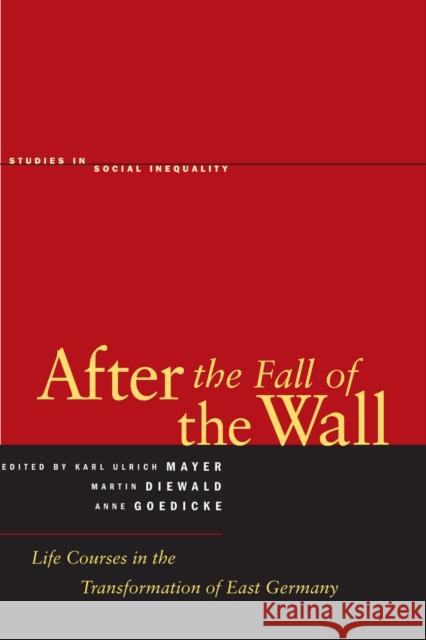After the Fall of the Wall: Life Courses in the Transformation of East Germany » książka
After the Fall of the Wall: Life Courses in the Transformation of East Germany
ISBN-13: 9780804752084 / Angielski / Twarda / 2006 / 408 str.
The fall of the Berlin Wall in 1989 was the beginning of one of the most interesting natural experiments in recent history. The East German transition from a Communist state to part of the Federal Republic of Germany abruptly created a new social order as old institutions were abolished and new counterparts imported. This unique situation provides an exceptional opportunity to examine the central tenets of life course sociology. The empirical chapters of this book draw a comprehensive picture of life course transformation, demonstrating how the combination of life course dynamics coupled with an extraordinary pace of system change affect individual lives. How much turbulence was created by the transition and how much stability was preserved? How did the qualifications and resources acquired before 1989 influence the fortunes in the restructured economy? How did the privatization and reorganization of firms impact individuals? Did the transformation experiences differ by age/cohort and gender? How stable were social networks at work and in the family? Were personality characteristics important mediators of post-1989 success or failure or were they rather changed by them? How specific were the East German life trajectories in comparison with Poland and West-Germany?











